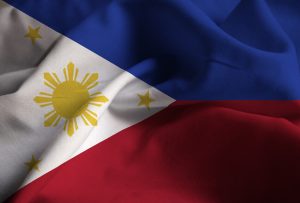The Philippine government has distanced itself from the controversial legal case launched by the heirs of the vanished Sulu Sultanate against the Malaysian government – one that touches on a longstanding Philippine claim to the Malaysian state of Sabah.
In March, a French court of arbitration ordered the Malaysian government to pay the gargantuan sum of $14.9 billion to the legal descendants of Jamalul Kiram II, the last Sultan of Sulu. This award is connected to a legal case launched by the heirs in 2017 to win compensation over land in Sabah that they claim their ancestors had leased to a British trading company in 1878.
In the months since, lawyers for the heirs have begun seizing Malaysian state assets in various parts of the globe, including two subsidiaries of the state-owned oil company Petronas. The Malaysian government has pledged to fight the enforcement of the order.
The claim by the descendants of the Sultan of Sulu against Malaysia “is in the nature of a private claim” and does not involve the government, Trixie Cruz-Angeles, a spokeswoman for President Ferdinand Marcos Jr. said, according to BenarNews. “Therefore, it is not an issue of sovereignty or of territory at the moment.”
The reason that the Philippine comment is significant is that the 1878 agreement forms the basis for Manila’s own longstanding claim, which it is yet formally to renounce, to the Malaysian state of Sabah. Under the agreement, then Sultan Jamalul Azam (r. 1862-1881) ceded sovereignty over large parts of eastern Sabah to two foreign traders, Alfred Dent and Baron de Overbeck, who agreed that they and their future heirs were to pay the heirs of the sultan 5,000 Mexican dollars per year. The territories were absorbed into the British crown colony of North Borneo, and then into the Malaysian federation created in 1963.
A year prior to the federation’s creation, the Philippines staked a claim to the former territories of North Borneo, arguing that the 1878 treaty was a lease rather than a treaty of cession, as the Malaysian government has since claimed.
Harry Roque, a former spokesperson for President Rodrigo Duterte and Marcos’ private counsel, has praised the French court’s decision against Malaysia, arguing that it “strengthens” the Philippines’ claim to Sabah. “The Philippines has never surrendered its claim to the territory,” said Roque in a Facebook post last month, according to ABS-CBN news.
“I advise our President to clarify whether the country will actively pursue this claim or allow the Sultanate heirs to negotiate privately with the Malaysian government,” he added. Meanwhile, Philippines Solicitor General Menardo Guevarra has told local media that his office is “carefully studying the legal and constitutional implications, if any, of the arbitral award in favor of the heirs of the sultan of Sulu.”
While Marcos has yet to declare his stance on the Sabah claim as president, his recent State of the Nations speech, in which he promised not to “abandon even one square inch” of Philippine territory, has been seized upon by Sulu heirs and supporters of the Sabah claim as a sign that he might help take back the territories from Malaysia. Recent paranoid reports to this effect have recently appeared in the Malaysian press.
Asked by reporters whether Marcos’ statement about territorial integrity, which referred to Philippine-claimed features in the South China Sea, applied to Sabah, Cruz-Angeles demurred. “The President’s articulation of his statement about not giving up a square inch of territory will have to be reduced into writing and into specifics after which we will announce these to you if they are in any way related to the Sabah claim,” she said, according to ABS-CBN news.
Like his father Ferdinand E. Marcos, who prepared military plans to seize back Sabah by force in the 1960s, Marcos Jr. has previously expressed support for the Philippines’ claim over the region. In 2013, while serving as a senator, he put out a statement claiming that “we have historical claim over Sabah and that’s a fact.”
“The Sultan of Sulu and his people are Filipino citizens and, by virtue of that fact, they deserve protection from the government of the Philippines,” the statement added.
The Philippines has good reason to remain aloof from Malaysia’s legal troubles, but there will no doubt be many in Manila (and the Sulu archipelago) who are relishing the difficulties that Kuala Lumpur is facing in the aftermath of the French court’s ruling. At the same time, it is unlikely that Marcos will court renewed frictions with Malaysia over a territorial claim that has little chance of fulfillment – even if for nationalistic reasons he is unable to say so openly.

































